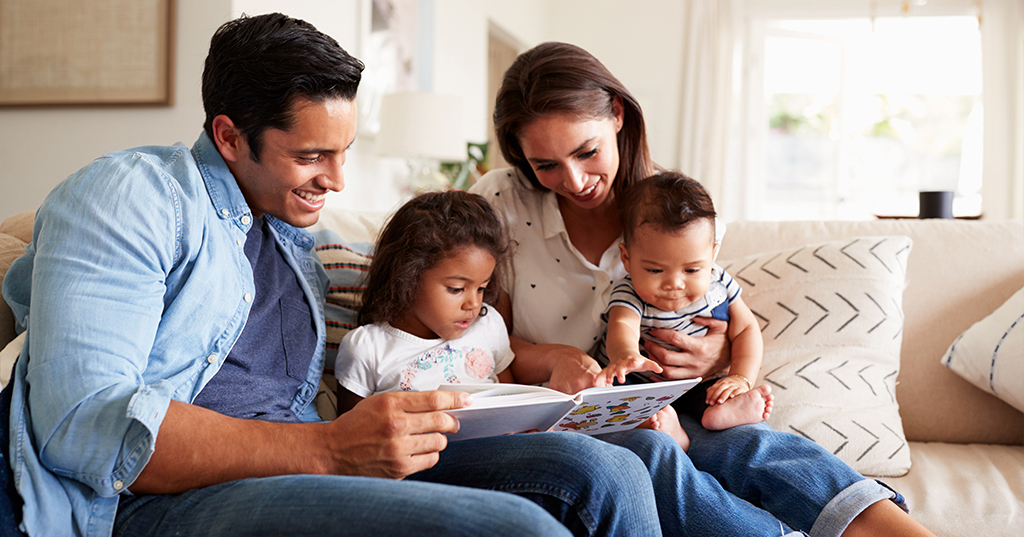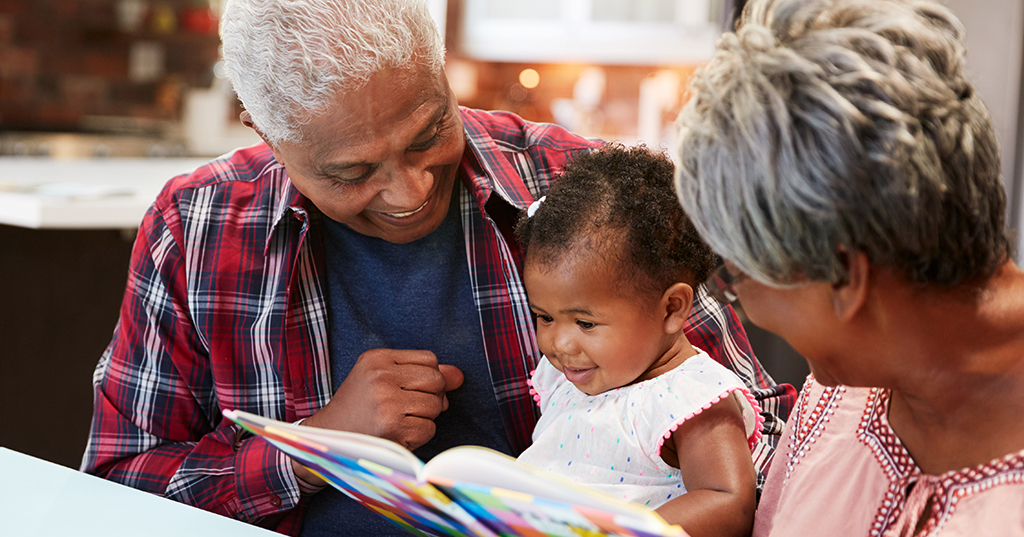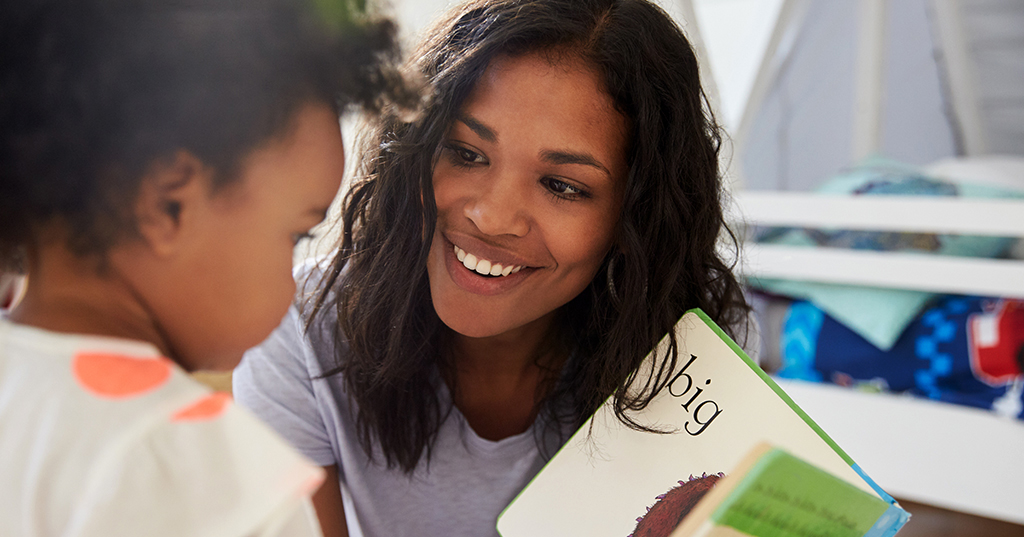 When it comes to early childhood literacy, we have good news. You aren’t ahead of schedule and you’re not late to the game. It’s never too early or too late to foster early literacy – you and your baby can start right now!
When it comes to early childhood literacy, we have good news. You aren’t ahead of schedule and you’re not late to the game. It’s never too early or too late to foster early literacy – you and your baby can start right now!
But what do we mean when we say “literacy”? Simply put, literacy is the ability to read and write, but it can expand to include language and various communications methods that allow us to express our thoughts and feelings.
As a parent or caregiver, you are your child’s role model and first teacher for just about everything. They love spending time with you, which makes you uniquely equipped to introduce them to the world of reading and writing. And because they have short attention spans, the fact that you’re around to pick up a book or sing a song when the opportunity presents itself is key. Here are just a few things you can do with your baby over-and-over again to set them up for successful literacy as they grow.
Baby Talk
Talking to your baby even before they can speak themselves is so important. Babies express themselves through movement, so clapping and pointing with your baby is a great exercise. Say the name of an object out loud when identifying things to help build your child’s vocabulary. Babies love to imitate, so the more you speak to them, the more encouraged they’ll be to try it out for themselves. You can talk about what’s going on around you, what you see, what you’re doing, or tell them a story. All of this interaction helps foster literacy.
Your tone is also important. “Baby talk”— that high-pitched, sing-song voice adults use with small children — is actually a good thing. It lets your baby know that you’re speaking specifically to them because it’s different from your normal tone and gets their attention. Babies can pick up on emotional tones and know when they’re being heard (even if we don’t understand what they’re saying). Your loving and positive response is key.
Sing Along
Songs and rhymes help babies start to distinguish similar words based on their phonetic sound. This allows children to begin to break down words into smaller parts, which can be reinforced through clapping or bouncing. Singing also slows language down and fosters memorization, allowing babies to further build their vocabulary.
Nursery rhymes, kids’ songs, or just songs you make up while going about your day, all help build literacy skills. In fact, studies show that children who have memorized songs and rhymes before they start kindergarten are more successful in school than children who do not. So go ahead and sing your heart out!

Story Time
One of the best things you can do for your baby is to make reading a part of your daily routine. Babies love board books because they are easy to hold, colorful, and can be read over and over (if there’s one thing we know babies love, it’s repetition). Your baby learns how words, ideas, and language work by listening to you read. You can never read to them too much. Not only does reading stimulate your child’s mind, but the body contact from sitting on your lap or in your arms furthers your bond.
You can check out books from your local Library branch and get recommendations from the Children’s Librarian – they always know the latest and greatest titles. You can even come to storytime at your local branch – it’s never too early to start! We have age-appropriate storytimes that work on specific skill sets, but all ages are welcome anytime.
Write On
Did you know scribble scrabble is part of early literacy? Even if your child is too young to hold a pencil, much less spell their own name, jump-starting the development of the motor skills necessary for writing is important for kids ages 0-2. Give them large markers, crayons, and paints and let them go to town. Once your baby can form sentences, have them tell you a story or explain what they’ve drawn. Write it down for them below their picture. This reinforces the connection between oral and written language.
Children learn through their senses, so the tactile act of writing and drawing with different materials allows them to experience different textures — the smoothness of paint, the waxiness of a crayon — encountering different objects is the best way for babies to develop early writing skills.
Playtime Fun
When we say learning can be fun, we aren’t kidding. Unstructured playtime, whether it’s fun with a favorite toy or a game of peek-a-boo, allows the imagination to fire – a skill that will help with reading comprehension down the line. Dramatic play with puppets or reenacting scenes from the day will foster a child’s narrative skills essential for writing.
All of this helps build your child’s view of the world, improving social interactions, hand-eye coordination, cause and effect understanding, and communication. Even by shaking a rattle, your baby will learn that a certain movement they make causes a certain sound, connecting their own actions to what happens in the world around them.

Early literacy is so important because it forms the basis for all kinds of learning, no matter the subject. It’s how children develop lifelong essential language and communication skills. Developing these skills early will make it that much easier for children to learn to read and write when the time comes. The faster a child can master reading, the quicker they will excel in school.
Did you know all 41 Library locations have Early Literacy Stations? We also regularly host Family Literacy Events. Check out the events page to see when the next gathering at your local branch is taking place.


Add a comment to: Five Fun Early Literacy Tips for Your Baby